#DLD Conference
Explore tagged Tumblr posts
Text
youtube
**Unlocking Innovation: Insights from DLD Conference Thought Leaders** In today’s fast-paced world, innovation and sustainability are key drivers of progress. The DLD Conference has consistently brought together some of the brightest minds and industry leaders to discuss groundbreaking ideas and inspire change. This year, we were honored to host notable speakers including Michael Kingsbury from Uluu, Sara Marquart of Planet A Foods, Christoph Zinsser representing Stegra, and Christian Teichmann from Burda Principal Investments. Michael Kingsbury, a leader in sustainable food systems, shared insights on the future of nourishment and the role that innovative technology can play in enhancing food production and reducing waste. His passion for redefining food sources resonates with the urgency to adapt our agricultural practices to meet the demands of a growing population while preserving our environment. Sara Marquart contributed to the conversation by emphasizing the intersection of food and sustainability at Planet A Foods. Her perspective on promoting plant-based diets as a viable solution to combat climate change is particularly significant. By integrating sustainability into everyday food choices, Marquart highlights how consumers can make a profound impact on the planet. Christoph Zinsser offered valuable insights on the digital landscape and its potential for driving transformation in various sectors through Stegra. As companies navigate the complexities of technology and data, Zinsser’s expertise in leveraging digital strategies can guide organizations in unlocking new opportunities and enhancing operational efficiencies. Finally, Christian Teichmann brought a unique perspective from Burda Principal Investments, illustrating the importance of strategic investment in innovative ventures. His experience navigating the investment landscape underscores the need for alignment between capital and creative vision, fostering an ecosystem conducive to breakthroughs. These discussions are just a glimpse into the thought-provoking moments captured during past DLD Conferences. We invite you to explore more inspiring talks and insights from our distinguished speakers on our dedicated channel. Keep engaging with industry leaders, unearthing groundbreaking ideas, and witnessing key moments that shape our future. For news, upcoming events, and more fascinating topics, make sure to visit the DLD website and connect with us on our social media platforms: - [DLD Website](https://ift.tt/YUnfhDL) - [DLD on LinkedIn](https://ift.tt/ejW9OAU) - [DLD on Instagram](https://ift.tt/na4lyHt) - [DLD on Twitter](https://twitter.com/dldconference) - [DLD on Facebook](https://ift.tt/vC3kPjT) Stay tuned for more updates and continue to be part of the innovation discourse that drives our global community forward.
#sustainable innovation#material culture#culinary design#tech meets tradition#visionary thinkers#Youtube
0 notes
Text
Deciphering Title Deeds: Grasping Property Ownership in Dubai
Entering the labyrinth of real estate brokers in Dubai can be a formidable endeavor, particularly when it comes to comprehending property ownership. At the core of this intricacy lies the notion of title deeds. In this discourse, we aim to demystify the enigma surrounding title deeds, shedding illumination on their essence and significance for anyone engaged in Dubai's property sphere.
What Constitutes a Title Deed?
Let's commence with the fundamentals. A title deed is a legal instrument serving as evidence of ownership for a property. It delineates the rights and obligations of the property possessor, furnishing particulars such as the property's location, dimensions, and boundaries. In Dubai, title deeds manifest in diverse forms, each bearing its implications for ownership.
Varieties of Title Deeds in Dubai:
Freehold: Among the most coveted forms of property ownership in Dubai is the freehold title deed. It endows the possessor with absolute rights to the property, encompassing the land it occupies, for an indefinite duration. Freehold properties are freely transferable, buyable, or leasable without constraints, appealing to both UAE nationals and foreign investors, thereby rendering them highly sought-after in the market.
Leasehold: In contrast to freehold properties, leasehold title deeds confer upon the holder the right to utilize the property for a specified term, typically ranging from 30 to 99 years. While leasehold properties offer certain advantages, such as lower initial expenditures, they entail constraints on ownership and may necessitate renewals or extensions.
The Process of Acquiring a Title Deed:
Securing a title deed in Dubai entails several procedures and legal formalities. These may encompass the submission of pertinent documents, procuring approvals from governmental entities, and remitting registration fees. The process's intricacies hinge on the property type and the specific regulations governing it.
Entitlements and Obligations:
Possessing a property in Dubai entails a gamut of entitlements and obligations stipulated in the title deed. These may encompass the right to utilize the property for residential or commercial purposes, coupled with duties such as discharging utility bills, maintenance fees, and adhering to community statutes.
Verifying Property Ownership in Dubai:
Access the Dubai Land Department (DLD) website. Log in to the Ejari System. Enter the requisite details. Verify the ownership credentials. Alternatively, scrutinize the property's history via the DLD or reach out to Exclusive Links, and we'll gladly assist you through the process.
Deciphering a Title Deed in Dubai:
Description of the property, encompassing its category, dimensions, location, boundaries, etc. Name and identification number of the property's legal owner Most recent transfer date, issuance date Purchase price Factors impeding the property's sale or restricting acquisition Official seal of the Deeds Registry Office Each title deed in Dubai is assigned a unique registration number. In case of any doubts regarding a title deed's legitimacy, promptly authenticate it through the Dubai Land Department website or the Dubai Rest App, accessible on Google Play for Android and the App Store for iOS devices.
0 notes
Text
Lagos Chess Academy Founder, Tunde Onakoya Crowned New Chess master, wins 10 Opponents Simultaneously in Germany
A Nigerian chess master and founder of Lagos Chess Academy-Chess In Slum Africa - Tunde Onakoya has set a new record winning 10 opponents in a chess game simultaneously in Germany. Tunde Onakoya The game was held as a part of the programs to raise funds at the Digital - Life - Design (DLD) conference in Germany. On Day 2 of the DLD conference in Germany, Onakoya simultaneously engaged 10 players at the same time and won all 10 games. In a post on the microblogging platform X, Onakoya said: On day two of the DLD conference, I played a simultaneous chess match against 10 players at once. After an almost two hour battle of wits ,I managed to win all the games. The Chess exhibition helped us raise enough money to support the education of 100 children in our academy. Tunde Onakoya on DLD Conference https://twitter.com/Tunde_OD/status/1747605760744263906 About Tunde Onakoya and his Journey to Becoming a Chess Master https://youtu.be/zeEdTMv53qQ Tunde Onakoya grew up in the slums of Oshodi in Lagos state Nigeria. While out of school in his early years, he found his passion for chess from a local player. Onakoya evolved to become a Nigerian chess master and coach. He founded the Chess in Slums Africa. Onakoya has organized a number of interventions for children across slums in Lagos state including Majidun (Ikorodu), Makoko and recently, Oshodi. The children are engaged in a 2 week's session that seeks to unlock their potential through the game of chess while learning to read, write and acquire basic literacy skills. Read the full article
0 notes
Text
How to Start a Real Estate Company in Dubai: A Comprehensive Guide
Dubai thriving real estate market presents lucrative opportunities for entrepreneurs looking to establish their own real estate companies. Whether you're a local resident or an international investor, Starting A Real Estate Business In Dubai requires careful planning and adherence to legal and regulatory processes. In this guide, we'll walk you through the essential steps to set up your real estate company in the vibrant city of Dubai.

1. Research and Planning
a. Market Analysis
Before diving into the real estate industry, conduct a thorough market analysis to understand current trends, demand, and competition. Identify target demographics and niche markets to tailor your services effectively.
b. Business Plan
Develop a detailed business plan outlining your company's mission, vision, target market, marketing strategy, and financial projections. A well-thought-out business plan will serve as your roadmap to success.
2. Legal Structure and Licensing
a. Choose a Legal Structure
Decide on the legal structure for your real estate company. Options include sole proprietorship, partnership, or a limited liability company (LLC). An LLC is a common choice due to its flexibility and limited liability protection.
b. Obtain Necessary Licenses
Contact the Dubai Land Department (DLD) to inquire about the required licenses for real estate activities. Ensure compliance with regulations, and obtain the necessary approvals to operate legally in Dubai.
3. Office Setup
a. Location
Select a strategic location for your office that is easily accessible to clients and within proximity to key business hubs. Consider the business district for a professional image.
b. Office Infrastructure
Set up a well-equipped office with essential facilities, such as communication systems, furniture, and a welcoming reception area. Ensure compliance with local regulations regarding office space requirements.
4. Team Building
a. Recruitment
Hire qualified and Licensed Real Estate professionals to form a competent team. Ensure that your team members are well-versed in Dubai's real estate laws and regulations.
b. Training
Provide ongoing training to your team to keep them updated on market trends, legal changes, and effective sales techniques. Well-trained agents contribute to the success of your real estate business.
5. Marketing and Branding
a. Develop a Strong Brand
Create a compelling brand identity that reflects your company's values and professionalism. Invest in a visually appealing logo, website, and marketing materials.
b. Digital Marketing
Utilize digital marketing strategies to reach a wider audience. Leverage social media platforms, SEO, and online advertising to promote your real estate services.
6. Networking and Partnerships
a. Join Industry Associations
Connect with real estate associations and organizations in Dubai to expand your network. Attend industry events, seminars, and conferences to build relationships with key players in the market.
b. Form Partnerships
Collaborate with developers, banks, and other businesses to enhance your services and create mutually beneficial partnerships.
7. Compliance and Risk Management
a. Stay Compliant
Regularly review and update your processes to ensure compliance with changing regulations. Stay informed about legal requirements and make any necessary adjustments to your operations.
b. Risk Management
Implement effective risk management strategies to mitigate potential challenges. Have a clear understanding of market risks and develop contingency plans to safeguard your business.
Conclusion
Starting a real estate company in Dubai requires careful planning, dedication, and compliance with legal requirements. By following these steps and staying informed about the dynamic real estate market in Dubai, you can position your company for success in this thriving industry. Good luck with your venture!
#Starting A Real Estate Business In Dubai#Business Setup Dubai#mainland business setup dubai#freezone business setup dubai#business setup consultants in dubai#mainland company formation in dubai#business#business setup
0 notes
Photo

Don't ask me how, but I somehow managed to get to #DLD. #dldtelaviv #dld2017 #conference #publicspeaking #pitch #startuplife #startupnation #startup #marketing #innovation top: @sassandbide bag: @zadigetvoltaire sandals: @topshop @dldconference (at Tel Aviv, Israel)
#dld#innovation#startup#startuplife#publicspeaking#conference#dld2017#pitch#dldtelaviv#marketing#startupnation
2 notes
·
View notes
Photo
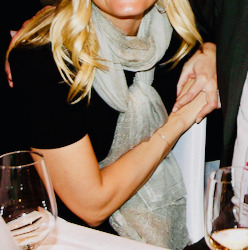

Through the Years → Mette-Marit, Crown Princess of Norway (444/∞)
22 January 2012 | Crown Princess Mette-Marit of Norway, Nolan Bushnell and Mitchell Baker attend the Chairmen & Speaker Dinner during the DLD Conference 2012 at the Jewish Community Centre in Munich, Germany. (Photo by Andreas Rentz/Getty Images)
1 note
·
View note
Text
Airbus to test a self-piloted flying car prototype by the end of the year
Airbus to test a self-piloted flying car prototype by the end of the year
Airbus Group plans to test a prototype for a self-piloted flying car as a way of avoiding gridlock on city roads by the end of the year, the aerospace group’s chief executive said on Monday.
Airbus last year formed a division called Urban Air Mobility that is exploring concepts such as a vehicle to transport individuals or a helicopter-style vehicle that can carry multiple riders. The aim would…
View On WordPress
0 notes
Text
Week 11: Llamas vs The Chinese Government
If someone tried to tell me that China had one of the highest uses of social media in the world, I would have never believed them. Because, in my small mind, and im sure in the minds of many others, China seems like a far away and oppressed country when it comes to social media. I’d heard stories of people going on holiday there and not being able to post about it on social media until they got home. In my head it was strictly monitored and censored in all capacities.
So yes, I was shocked to find out that China has many successful social media platforms, none of which that we use in the Western world. The biggest network is QZone. As of 2014 the platform had. Around 645 million users (!!!). Although that isn’t huge when comparing to networks like Facebook, Facebook is used globally, whereas QZone is almost exclusively used in China. That’s a ridiculously large amount of people from one country.

But that’s because there is no Facebook in China. There’s no Instagram. No Twitter either. I wonder if they know what they’re missing, or if the networks they use are significantly better than ours. I might have to check that out later.
And even if they aren’t called the same names or do exactly the same things, China have an equivalent to each of the networks we have. Sina Weibo and Tencent tend to replace our idea of Twitter, and Facebook has a multitude of copycat versions.
Out of the 58% of Chinese internet users who use social media, a significant 37% are students. Now, it isn’t a completely new concept that youth have always pushed for change across the world throughout history, be it social, technological etc, but there is a massive difference in a country like China, where the government has a lot more power, and those who scream revolution have intense ramifications to answer to.
This is why the students of China have to be more resourceful and effective.
It is difficult for a social media user in China to express negative opinions on their platforms, and so young people have adapted and constructed an entire new language, constituting of symbols, images and sounds. This allows them to communicate with each other about things the government might not like to hear without being punished. Just like in many other countries around the world, the government cannot censor something if they don’t understand the language.

The language rapidly changes, so as soon as the government discover what one symbol may mean, it has been changed to something else. A now iconic meme named the Grass Mud Horse refers to images of llamas. People shared images of llamas as an act of defiance towards the government. Llama is extremely similar to the phrase for ‘fuck your mother,’ and so whenever someone. Wanted to protest against their government they shared an image of a llama.
Although the thought of having to create a whole new dialect to protest against what is happening around me terrifies me, it seems like the youth in China are getting away with it just fine. Even thought they may use social media just us much as we do, the things they are using it to say are significantly more important.
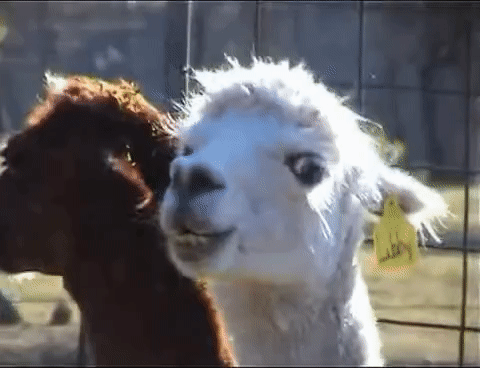
References
DLD Conference 2013, DLD13 - How Social Media is changing China and Asia (Kevin Lee, Duncan Clark, Kitty Lun), 7 February, viewed 28 May 2019, <https://www.youtube.com/watch?v=rG3z2ucaR6A>
Kemp, S 2014, Internet users pass 3 billion mark, We Are Social, viewed 28 May 2019, <http://wearesocial.sg/blog/2014/11/internet-users-pass-3-billion/>
Social Networks in China - Statistics & Facts 2013, Satista, viewed 28 May 2019, <http://www.statista.com/topics/1170/social-networks-in-china/>
28 notes
·
View notes
Text
Decoding Title Deeds: Understanding Property Ownership in Dubai
Traversing the complex realm of real estate in Dubai can feel overwhelming, particularly when grappling with the intricacies of property ownership. Central to this complexity lies the notion of title deeds. In this article, we aim to demystify the enigma surrounding title deeds, shedding light on their significance and relevance within Dubai's property sphere.
Definition of a Title Deed:
Let's begin with the fundamentals. A title deed serves as a legal document verifying ownership of a property. It delineates the rights and obligations of the property holder, detailing pertinent information such as location, size, and boundaries. In Dubai, title deeds manifest in diverse forms, each carrying its own implications for ownership.
Varieties of Title Deeds in Dubai:
Freehold: Among the most coveted forms of property ownership in Dubai is the freehold title deed. This confers complete ownership rights over the property, including the land, indefinitely. Freehold properties can be freely bought, sold, or leased without constraints by both UAE nationals and foreign investors, rendering them highly desirable in the market.
Leasehold: In contrast to freehold properties, leasehold title deeds grant the holder the right to use the property for a specified duration, typically ranging from 30 to 99 years. While leasehold properties offer certain advantages such as lower initial costs, they also entail limitations on ownership and may necessitate renewals or extensions.
Process of Obtaining a Title Deed:
Acquiring a title deed in Dubai involves several procedural steps and legal formalities. These may encompass submitting requisite documents, obtaining approvals from governmental bodies, and remitting registration fees. The process's intricacy may vary contingent upon the property type and corresponding regulations.
Rights and Responsibilities:
Property ownership in Dubai entails a set of rights and responsibilities delineated in the title deed. These may encompass the right to utilize the property for residential or commercial purposes, alongside obligations like settling utility bills, maintenance fees, and adhering to community regulations.
Verification of Property Ownership in Dubai:
Access the Dubai Land Department (DLD) website. Login to the Ejari System. Input pertinent details. Verify ownership information. Additionally, one can explore a property's history through the DLD or reach out to Exclusive Links for guidance.
Interpreting a Title Deed in Dubai:
Property description encompassing type, size, location, boundaries, etc. Name and ID of the legal property owner. Most recent transfer and issue dates. Purchase price. Factors influencing sale difficulty or purchase restrictions. Official seal of the Deeds Registry Office. Each Dubai title deed is assigned a unique registration number. In cases of doubt regarding legitimacy, prompt verification can be conducted via the Dubai Land Department website or the Dubai Rest App, accessible on Google Play and the App Store.
Title Deed Vs. Oqood:
In Dubai, title deed terms vary depending on whether a ready property or off-plan is purchased. Completed property acquisitions yield regular title deeds directly in the purchaser's name. Conversely, off-plan property acquisitions result in an Oqood from RERA (Real Estate Regulatory Authority), signifying registration of the under-construction property in the buyer's name, with automatic conversion to a title deed upon project completion.
Fractional Title Deeds:
Opting to purchase a fraction of a unit entails acquiring a fractional title deed. This document subdivides a single unit into distinct fractions, each possessing its own title deed.
Transfer of Ownership / Title Deed:
The real estate sector ranks among the UAE's largest industries, governed by comprehensive regulations overseeing property transactions, including ownership transfer. Each Emirate, including Dubai, has its own set of laws regulating property transfer, overseen by the Dubai Land Department.
Despite the industry's vastness, navigating property transfer processes can be bewildering, particularly for novices. To alleviate confusion, we've compiled a detailed list of steps necessary for transferring property ownership in Dubai, with support from Exclusive Links' sales progression department.
Sign a sales agreement and United Form F. Obtain property valuation. Settle finances and liabilities. Acquire a NOC from the developer. Schedule ownership transfer at a DLD Trustee Office, and contact Exclusive Links for required documents and associated costs.
Click here to read more...
0 notes
Text
Lagos Chess Academy Founder, Tunde Onakoya Crowned New Chess master, wins 10 Opponents Simultaneously in Germany
A Nigerian chess master and founder of Lagos Chess Academy-Chess In Slum Africa - Tunde Onakoya has set a new record winning 10 opponents in a chess game simultaneously in Germany. Tunde Onakoya The game was held as a part of the programs to raise funds at the Digital - Life - Design (DLD) conference in Germany. On Day 2 of the DLD conference in Germany, Onakoya simultaneously engaged 10 players at the same time and won all 10 games. In a post on the microblogging platform X, Onakoya said: On day two of the DLD conference, I played a simultaneous chess match against 10 players at once. After an almost two hour battle of wits ,I managed to win all the games. The Chess exhibition helped us raise enough money to support the education of 100 children in our academy. Tunde Onakoya on DLD Conference https://twitter.com/Tunde_OD/status/1747605760744263906 About Tunde Onakoya and his Journey to Becoming a Chess Master https://youtu.be/zeEdTMv53qQ Tunde Onakoya grew up in the slums of Oshodi in Lagos state Nigeria. While out of school in his early years, he found his passion for chess from a local player. Onakoya evolved to become a Nigerian chess master and coach. He founded the Chess in Slums Africa. Onakoya has organized a number of interventions for children across slums in Lagos state including Majidun (Ikorodu), Makoko and recently, Oshodi. The children are engaged in a 2 week's session that seeks to unlock their potential through the game of chess while learning to read, write and acquire basic literacy skills. Read the full article
0 notes
Photo

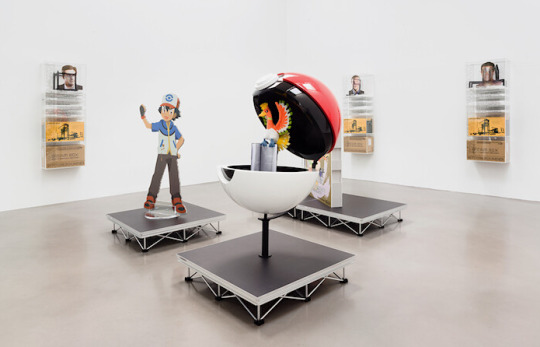

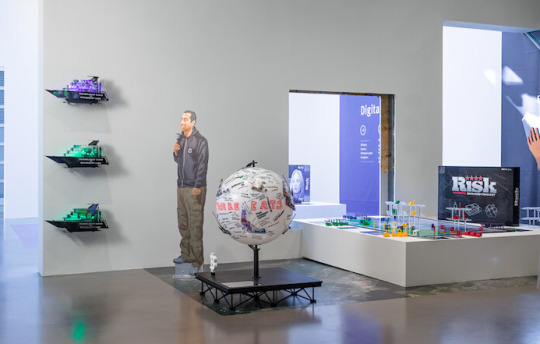
Simon Denny, Blockchain Future States at the Berlin Biennale
The pieces on view at PS1 aimed to repurpose the conventions of contemporary art to investigate numerous aspects of digital capitalism, including startup culture, corporate language and display, and pirate economies. One’s opinion of this work largely depended on whether one thought it suggestively reframed its appropriated referents, or instead merely reproduced them in a bid to leverage their contemporaneity for the benefit of the artist and museum. To this viewer, Denny’s most effective works have been those that exert the greatest torsion on what are by now overly familiar strategies: readymade assemblages that function as “portraits” of buzzy startups; installations based on corporate conference rooms; embedded “research” with tech incubators; a deadpan neoconceptualist investigation of Samsung’s corporate philosophy.
Yet while some critics have interpreted this work as a kind of Institutional Critique 2.0, along the lines of work by Carey Young or Melanie Gilligan, Denny’s public persona suggests a more ambiguous, conflicted, or compromised stance. In certain situations Denny has adopted what appears to be a subversive position; one thinks here of “Secret Power,” his contribution to the 2015 Venice Biennale, which used images surreptitiously commissioned from a former graphic designer for the US National Security Agency. In others, he has spoken in the bland generalities typical of much contemporary art discourse: he is “interested” in tech culture or “fascinated” by its contradictions, and tends to deflect questions about whether he is being sarcastic. In still others, Denny presents himself with what seems to be a completely ingenuous earnestness: “I am a fan of the culture of entrepreneurship. An artist is also a business... The values associated with entrepreneurship seem very close to me. Highly motivated people with high-risk precarious ideas mixed with efficiency and metrics. What could be more beautiful?”
Given such an overt echo of Warhol (“good business is the best art”), or the fact that Denny has spoken favorably about “critical trolling,” one first wants to take him ironically, only to find this impulse stymied by all the evidence to the contrary. Denny has the credibility to be taken seriously by Texte zur Kunst, but he also has no problem speaking of his sincere respect for the advertising industry, glibly telling DIS about the contents of his DLD swag bag, or giving an interview to Bloomberg for a fawning video profile. Some might say that this speaks to his ability to locate contradictions in the discursive-institutional economy of contemporary art, yet while this might be so Denny’s mobility nevertheless comes at the cost of a fundamental compromise, in that his stance inevitably reads as one of noncommittal, easily recuperated quasi- or para- or post-critique.
1 note
·
View note
Text
Reasons for Optimism
NOTE: I will resume posting excerpts from World After Capital next week.
A couple of weeks ago I first tweeted about what gives people reasons for optimism and then wrote a post. Both of these were preparations for giving the opening keynote for the 2019 DLD conference. I will eventually put the slides online but in the meantime, here is the video from the talk
youtube
1 note
·
View note
Photo


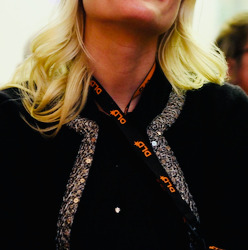
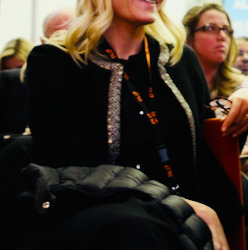
Through the Years → Mette-Marit, Crown Princess of Norway (443/∞)
22 January 2012 | Crown Princess Mette-Marit of Norway and DLDwoman chairwoman Maria Furtwaengler attend the Digital Life Design conference (DLD) at HVB Forum in Munich, Germany. DLD (Digital - Life - Design) is a global conference network on innovation, digital, science and culture which connects business, creative and social leaders, opinion-formers and investors for crossover conversation and inspiration. (Photo by Nadine Rupp/Getty Images)
1 note
·
View note
Text
Microsoft (MSFT) earnings Q3 2022
Microsoft (MSFT) earnings Q3 2022
Microsoft CEO Satya Nadella speaking at the DLD (Digital-Life-Design) conference in Munich, Germany, on Jan. 16, 2017. Tobias Hase | dpa | picture alliance | Getty Images Microsoft shares were flat in extended trading on Tuesday after the software maker issued fiscal third-quarter earnings that exceeded analysts’ expectations. Here’s how the company did: Earnings: $2.22 per share, adjusted, vs.…
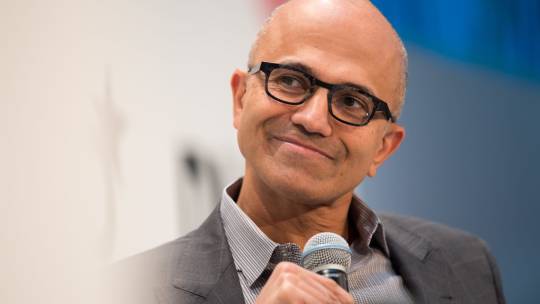
View On WordPress
0 notes
Text
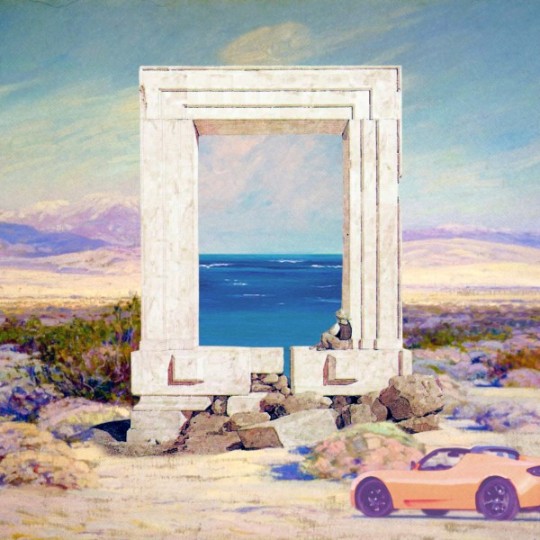
What is Seasteading? A discussion on the neoliberal fantasy of homesteading on the sea - disaster issue Alessandro Bava, architect and Renaissance man Martti Kalliala, and artist Daniel Keller discuss #seasteading and Tech-Secessionism - Dismagazine
Daniel Keller: Seasteading is a portmanteau of Sea and homesteading. It is the concept of building semi-permanent cities at sea, usually in international waters and armed with novel socioeconomic and legal systems. It’s sold as the optimal libertarian solution to the lack of innovation in government. Yet its essentially a fantasy escape plan for a permanent minority to circumvent a representative democracy, which is inherently unsympathetic to their devotion to tax evasion and secession.
Libertarians argue that the Federal government should consider itself a ‘public option’ provider of “citizen experience” in the governance industry, and open the market to competing options. Obviously no national government is going to let this happen within their borders, so the idea is that they might, for some reason, just go ahead and tolerate it as long as it takes place in international waters. So a seastead is seen as the only way to lower the barriers of entry to the “governance industry” which are insurmountably high in any sovereign (land-based) nation. These platforms would ideally be built modularly so that citizens or groups could merge and split off to form new seasteads in the constant search for their optimum-blend society. (Islands having sex with other islands, then divorcing them).
Alessandro Bava: Since the 15th century, understanding the legal and political status of the sea has been a struggle. Political philosophers like Hugo Grotius and Carl Schmitt have produced, in very different times, theories to define the immense and fluctuating body of water in terms of power relations. The renewed interest in seasteading seems to reignite that struggle by trying to inhabit the voids left by contemporary regulations on the sea, in times of global political instability. Do you think the seasteading option is a form of new colonialism, and in a way interprets current frustration with traditional governance models?
Martti Kalliala: I don’t think the colonial lens necessarily sets a meaningful frame in which to understand seasteading – even though you could say it’s rooted in a narrative sequence beginning with Manifest Destiny (then hitting the Pacific Wall, and reopening the idea of the frontier via a literal application of Blue Ocean Strategy).
But yes, frustration and anxiety for sure re: broken governance systems that have been experienced across the political spectrum. There’s a whole lot to be said about the current, and to a certain degree generational, disposition towards “exit over voice.” The tendency to favor opting-out over staying in, to create new structures rather than improve what already exists, to build a startup instead of a tracked career in existing organizations – or to start a new country. Exitcore might then be the aesthetic limit of utopia.
DK: I agree that the narrative basis of seasteading could be seen as a literal extension of Manifest Destiny off of the California coast and into the Pacific and beyond. But as opposed to classic forms of colonialism there aren’t any people out there being directly displaced or subjugated—seasteading has all the excitement and potential of a frontier without the humanitarian guilt. When I asked Peter Thiel about his interest in seasteading at the DLD conference a few years ago he framed it exclusively as fulfilling an emotional need for new exploitable frontiers as a catalyst for innovation and economic growth—first the oceans and then space.
AB: Is it untimely that such interest in the sea is “territorial” even in times when the biggest industries are non-territorial (i.e finance)?
MK: But the body is still territorial. And the banality and awkwardness of needing to deposit one’s physical body somewhere to be “free” is really fascinating: one would choose this total unfreedom and hardship that comes with living on an isolated platform in a corrosive, at times hostile ocean environment in exchange for a set of abstract, mainly negative freedoms. Culturally it’s a bizarre combination of settler machismo – battling the challenges of the life aquatic – and an almost autistic disregard for one’s physical environment – like whatever as long as there is soylent, hi-speed internet and a lax tax code.
DK: I think it’s a misconception that we’ve moved beyond the territorial. I think its similar to fantasies of the internet as immaterial when in fact it is an enormous, lumbering stack of physical infrastructure. This is also why I think people were so shocked by Russia’s territorial expansion into Ukraine— fighting for territory felt so retro. But even finance is super-territorial (not non-territorial). Enormous profits are derived from exploiting the differing ‘energy states’ between jurisdictions, through tax avoidance schemes like “the double irish” or the “dutch sandwich”, sort of comparable to a steam engine generating energy from thermal gradients. If the world was really post-territorial, this would no longer be possible. A uniform and post-territorial world would be akin to a state of maximum entropy.
AB: Martti how do you think seasteading is relevant in architecture, or rather how is architecture relevant to seasteading?!
MK: It’s pretty obvious how existing and historical architectural typologies of living and working could be applied in more intelligent and interesting ways compared to these naval engineer / archi-hobbyist designs that now circulate online.
More interesting is the fact that designing a seastead would mean collapsing spatial concepts such as country, city, neighborhood, territory, site and building into basically one architectural gesture. Or, at the other end of the spectrum, in a design where secession is possible down to the scale of an individual building or cell – a seastead as a kind of plankton raft of floating mini-steads – these concepts become almost meaningless.
AB: Theres something beautiful about imagining the sea horizon as the only view from your future window…is that just romantic? Or is it a generational phenomenon that arises from the implication of false ideas of limitlessness in technology, and the actual physical and phenomenological limitation we experience everyday?
MK: If it’s romantic, the ocean-as-image is also culturally (and apparently also biologically) imprinted with a host of associations that have been successfully appropriated by financial capitalism. Just think of concepts such as liquidity, offshore, Blue Ocean Strategy etc. and the imagery they are typically associated with. This is of course something that Daniel has been looking at a lot in his practice.
DK: Yes, I think the appeal of this imagery really boils down to an almost ‘lizardbrain’ attraction to blue and green landscapes. By employing that sort of imagery to illustrate entirely artificial concepts like liquidity, it lends them a sense of naturalistic inevitability. I imagine liquidity ‘looks’ more like cubes on a conveyer belt than a splash of refreshing aquamarine mouthwash.
AB: Martti recently you have rewritten Rem Koolhaas’ text ‘City of the Captive Globe,’ readapting it for seasteading, could you explain that connection?
MK: So the original text was an early hypothesis of the ‘theory of Manhattan’ written before Koolhaas’s seminal book Delirious New York. In it he abstracts Manhattan into its essential parts: a gridded archipelago in which each “science and mania” has its own plot. On each plot you have a base (platform) on top of which each philosophy can construct its own edifice, suspend unwelcome laws, facilitate speculative activity, etc. Here 1920’s Manhattan works as an ideological laboratory and an incubator of the world itself (the actual office and condo-filled Manhattan obviously failed to deliver on this hypothesis). Today of course the incubator is a startup incubator and the grid is the smooth unobstructed space of the ocean. So suddenly the text becomes the subconscious theory of seasteading…
While I understand the relative pragmatism of the Seasteading Institute – looking into solving the fundamental hard problems of settling in an ocean environment – which I’m sure is necessary for them to gain any mainstream acceptance, the potential of the seasteading imaginary is to a degree wasted on trying too hard to ‘make sense’ of it. It will probably never ‘make sense,’ and it shouldn’t. For it to be truly attractive I believe it ought to be explicitly charged with libido, excess, and insanity – essentially the unfulfilled promise of ‘Manhattanism’ as a kind of boiling aquaculture. So instead of the lock-in of the grid, a liquid substrate on which islands can copulate and produce mutant offspring, collapse, burn and rise again. And, why not resurrect seapunk as some kind of aesthetic practice of every day life?
0 notes
Text
Lagos Chess Academy Founder, Tunde Onakoya Crowned New Chess master, wins 10 Opponents Simultaneously in Germany
A Nigerian chess master and founder of Lagos Chess Academy-Chess In Slum Africa - Tunde Onakoya has set a new record winning 10 opponents in a chess game simultaneously in Germany. Tunde Onakoya The game was held as a part of the programs to raise funds at the Digital - Life - Design (DLD) conference in Germany. On Day 2 of the DLD conference in Germany, Onakoya simultaneously engaged 10 players at the same time and won all 10 games. In a post on the microblogging platform X, Onakoya said: On day two of the DLD conference, I played a simultaneous chess match against 10 players at once. After an almost two hour battle of wits ,I managed to win all the games. The Chess exhibition helped us raise enough money to support the education of 100 children in our academy. Tunde Onakoya on DLD Conference https://twitter.com/Tunde_OD/status/1747605760744263906 About Tunde Onakoya and his Journey to Becoming a Chess Master https://youtu.be/zeEdTMv53qQ Tunde Onakoya grew up in the slums of Oshodi in Lagos state Nigeria. While out of school in his early years, he found his passion for chess from a local player. Onakoya evolved to become a Nigerian chess master and coach. He founded the Chess in Slums Africa. Onakoya has organized a number of interventions for children across slums in Lagos state including Majidun (Ikorodu), Makoko and recently, Oshodi. The children are engaged in a 2 week's session that seeks to unlock their potential through the game of chess while learning to read, write and acquire basic literacy skills. Read the full article
0 notes